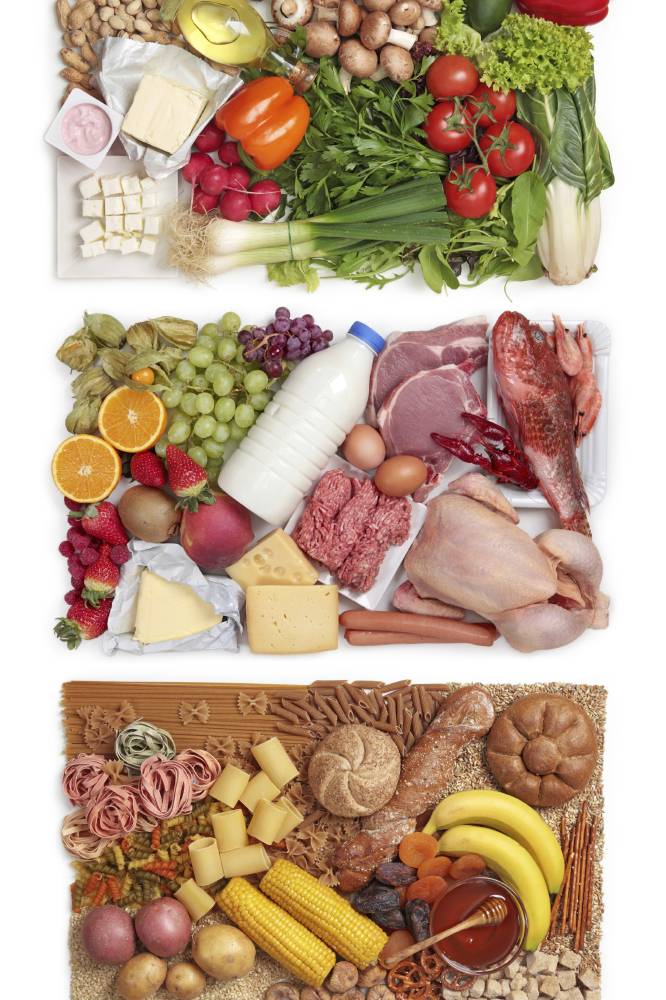
Eat your way to a better night's sleep
Eating rice could be the key to a good night's sleep, according to study of 2,000 people in Japan. But if rice isn't your thing we have the guide of foods to eat to help you get the best sleep.
A glass of warm milk
The old wives tale about a glass of warm milk can actually work wonders. This is because dairy is a source of tryptophan, an amino acid which your body converts to melatonin and serotonin which acts as a natural sedative. Warming up milk increases the comfort factor and if you are hungry, try adding a few oats as the carbohydrates make it easier for the tryptophan to get to your brain. Other foods high in tryptophan include chicken, eggs, cheese, tuna, nuts and seeds.
Cheese
Contrary to popular belief, cheese can actually contribute to a good night’s sleep! Tryptophan is an amino acid that our bodies convert to melatonin and serotonin which can help induce sleep. Calcium is also known to release serotonin. The key is not to overdo it and leave yourself at least 2 hours before going to bed so as to avoid indigestion.
Turkey
Turkey contains L-tryptophan, an essential amino acid with a documented sleep inducing effect which helps produce B-vitamins. It’s also metabolised into serotonin and melatonin which has a calming effect and helps regulate sleep.
Potatoes
Carbs act as a natural sleep aid by stimulating the pancreas to secrete insulin. When this happens, some amino acids that interact with tryptophan leave the bloodstream and enter muscle cells, which causes an increase in the tryoptophan levels in the bloodstream and results in an increase in the serotonin levels. High carb foods include potatoes, pasta and bread.
Valerian root
Valerian root is a herb that is believed to have a calming, relaxing effect on the body. It has been used for centuries to treat insomnia, mild anxiety and restlessness. The exact mechanism of action is unknown. However, it may act as a depressant to the central nervous to produce a mild tranquilizing effect. As with any herbal remedy always speak with your GP to find out if it’s an appropriate option.
Valerian root isn’t the easiest thing to included into your diet and so why not try Bonuit® Sleep Aid (£9.99 available from Holland & Barrett), a natural product that combines Valerian and Passion Flower, promoting healthy sleep and gently easing anxiety. Bonuit® Sleep Aid is a traditional herbal medicinal product used for the temporary relief of sleep disturbances due to symptoms of mild anxiety, exclusively based on long-standing use as a traditional herbal remedy.
Cutting the Cramp
One of the most common health reasons for a disturbed night’s sleep is nocturnal cramp which is thought to affect 13 million people in the UK. Common triggers for night cramps include; dehydration, tiredness, poor circulation, certain medications and calcium deficiency. They can also be triggered by turning or stretching during sleep. There are a number of dietary and lifestyle tips that could help:
- Dairy produce, dark leafy greens or nuts and seeds (magnesium-rich foods) help alleviate symptoms
- Bananas (or other potassium-rich foods) or supplementation in your diet also help
- Cut back on alcohol especially if you tend to drink a lot in the evenings
- Include suitable electrolytes such as salt or oranges and other citrus fruits in your diet during hot weather (particularly when exercising, as significant amounts of sodium can be lost through sweat)
To treat nocturnal cramp when it occurs try Crampex, (£3.05 for 12 tablets, available from Boots) the only product available over the counter that is licensed for both the treatment and prevention of night cramps. Unique triple-action Crampex contains calcium gluconate to help correct any calcium deficiency, cholecalciferol to aid calcium absorption and nicotinic acid to improve poor peripheral circulation. Always read the label before use. For further tips and advice on how to prevent nocturnal cramp visit www.takingcrampseriously.com
The no-no’s for nodding off...
Caffeine
It sounds obvious but avoid caffeinated drinks and food including coffee, tea, many soft drinks and chocolate, several hours before bed. Caffeine is a natural chemical that activates the central nervous system which makes it very hard to switch off.
Alcohol
Although many people use alcohol to help them relax before bed, the effects can quickly wear off so they wake up in the middle of the night. Over time, alcohol-induced sleep becomes less restful and sleepiness will become a constant fact of life.
Large meals
Eating a huge dinner, or even a large before-bedtime snack can make you feel drowsy, but the sleep won’t necessarily stay. When you lie down and try to sleep, your digestion will slow down, make you feel uncomfortable, and possibly keep you awake. It’s recommended to eat a dinner that has no more than 600 calories and optimally at least three hours before bed.

